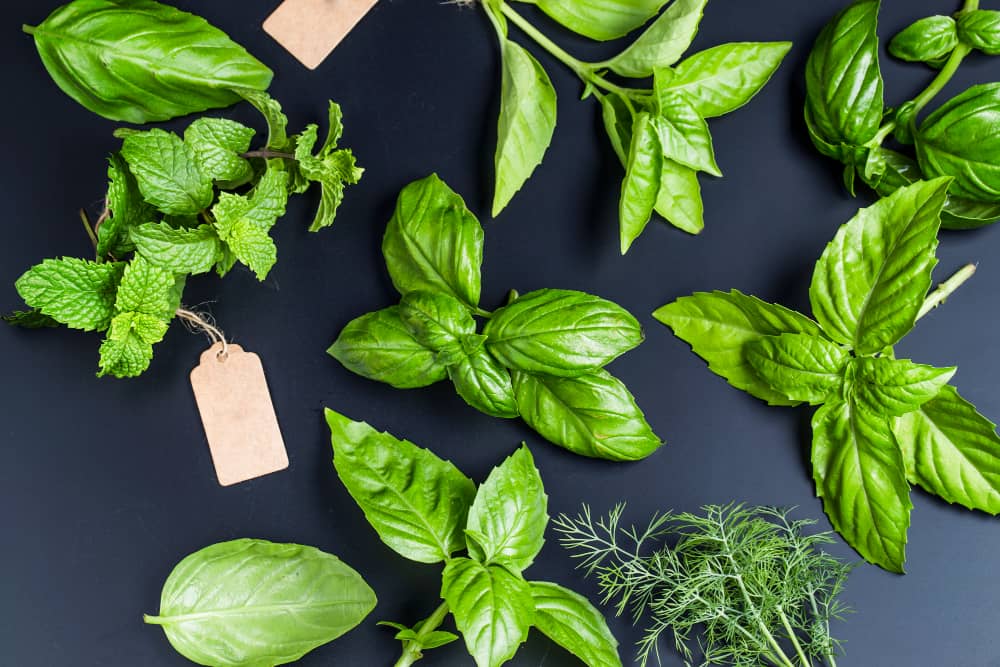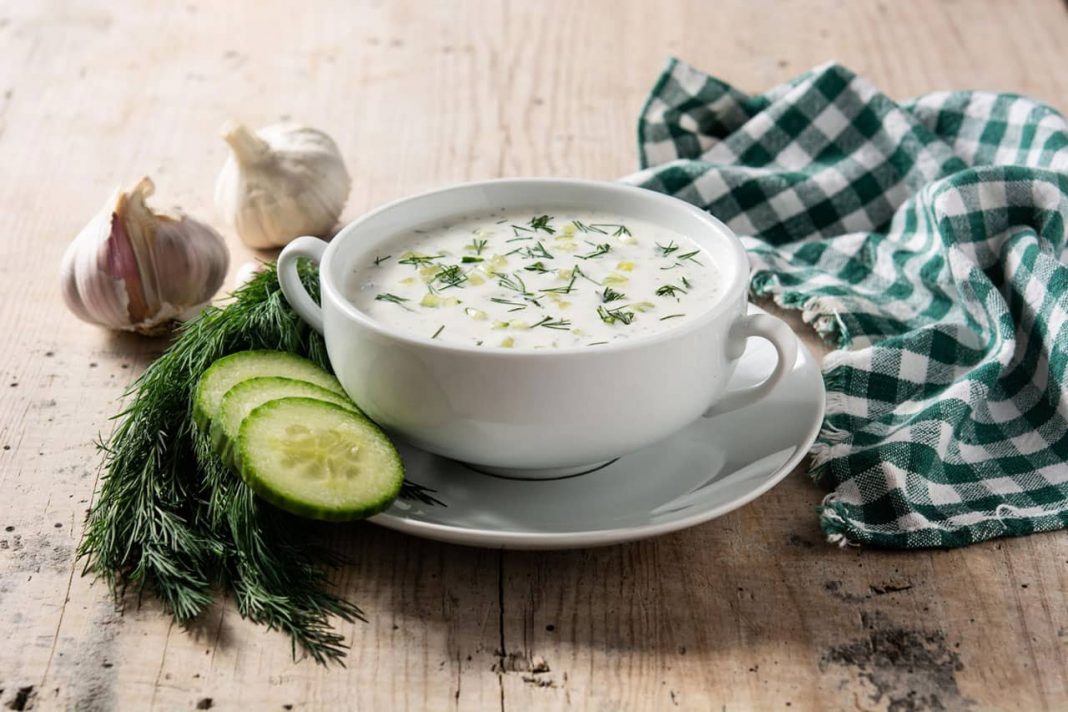Traditional Bulgarian herbs have been used for centuries in cooking, medicine, and folkloric traditions. In this article, we will explore some of the most popular herbs used in Bulgaria and their uses.
“Herbs are the friend of the physician and the pride of cooks”
Charlemagne
Dill is a common herb used in Bulgarian cuisine. It has a subtle flavor that goes well with many dishes. Dill can be used fresh or dried.
Parsley is another popular herb in Bulgaria. It is often used as a garnish but also has a strong flavor that can be used in cooking. Parsley can be used fresh or dried.
Basil is another herb that is commonly used in Bulgarian cuisine. It has a sweet flavor that goes well with many dishes. Basil can be used fresh or dried.
Sage is an herb that is traditionally used in Bulgarian folk medicine. It is said to have many medicinal properties. Sage can be used fresh or dried.
Rosemary is an herb traditionally used in Bulgaria for its purported medicinal properties. Rosemary can be used fresh or dried.
There are many uses for traditional Bulgarian herbs. They can be used in cooking, medicine, and folklore. These herbs are a part of Bulgaria’s rich history and culture.

Traditional Bulgarian Herbs
Bulgarian herbs have been used for centuries in traditional medicine, cooking, and home remedies. Some of the most popular herbs include dill, parsley, basil, sage, and rosemary. Each herb has unique properties and benefits that make it ideal for treating various ailments or adding flavor to food.
Dill
Dill (Anethum graveolens) is an herb used in Bulgaria for centuries. It is a parsley family member and has a strong, pungent flavor. Dill is often used to flavor pickles, soups, and stews. It can also be used fresh in salads or as a garnish. Dill has many health benefits. It is rich in vitamins A and C, calcium, and iron.
Dill is also a good source of fiber. In addition, dill has antibacterial and antifungal properties. Cut the herb into small pieces to dry the dill and place on a baking sheet. Place the baking sheet in a cool, dark place for about two weeks. Once the dill is completely dry, store it in an airtight container.
Parsley
Parsley (Petroselinum crispum) is a species of flowering plant in the family Apiaceae, native to the central Mediterranean region (southern Italy, Greece, Turkey, Morocco, Algeria, and Tunisia) but widely cultivated as a herb, a spice, and a vegetable throughout the world. In Bulgaria, parsley is known as петрушка (petrushka) and is used as a garnish or decoration on many dishes. It is also used in soups and stews.
Basil
Basil (Ocimum basilicum) is a culinary herb of the family Lamiaceae. It is also known as sweet basil or tulsi. It is native to India and other tropical regions of Asia.* Basil is a tender annual herb that is grown for its leaves. The leaves are used fresh or dried in a variety of dishes. The fresh leaves have the best flavor. Basil can also be grown as an ornamental plant.
The basil leaves flavor in many dishes, including soups, stews, sauces, and salads. They can also make pesto, a famous Italian sauce with olive oil, garlic, and Parmesan cheese. Basil is a relatively easy herb to grow. It prefers full sun and well-drained soil.
It is susceptible to frost and should be planted after the last frost date in your area. Basil can be started from seed or transplants. Once established, basil needs little care. Water it regularly and pinch back the stems to encourage bushy growth. Basil will bloom in late summer or early fall. The flowers are edible, but they can reduce the leaves’ yield, so removing them is best. Harvest basil leaves when they are young and tender. Older leaves will be more bitter in flavor. Cut the stems just above a set of leaves. You can dry or freeze basil for later use.
Sage
Sage is one of the most popular herbs in Bulgaria and has a long tradition of use in Bulgarian folk medicine. Sage is known for its many medicinal properties and has been used to treat various ailments.
One of the most popular uses for sage is as a treatment for colds and flu. Sage tea is traditionally drunk to help relieve the symptoms of colds and flu. Sage is also used as a gargle for sore throats.
Sage is also said to help treat digestive disorders such as stomach upset, indigestion, and gas. Sage tea is traditionally drunk after meals to aid digestion.
Sage is also used as a general tonic and detoxifier. It is believed to help cleanse the blood and strengthen the immune system. Sage tea is traditionally drunk regularly to promote good health.
Sage can be used fresh or dried. To make sage tea, steep 1-2 teaspoons of dried sage in boiling water for 10 minutes.
Rosemary
Rosemary is a fragrant, evergreen herb native to the Mediterranean region. It is often used in cooking and has many health benefits. Rosemary is a member of the mint family and has a woody, earthy flavor. It is often used to flavor meats, soups, and stews. It can also be used to make tea. Rosemary has many health benefits.
It is a good source of antioxidants and can help boost brain function. It also has anti-inflammatory properties and can help relieve pain. If you want rosemary, it is available fresh, dried, or as an oil. You can add it to your food or take it as a supplement.
Uses for Traditional Bulgarian Herbs
Herbs have been used in Bulgaria for centuries for cooking and medicinal purposes. Some of the most common herbs used in Bulgaria are:
Dill (под пречива): Used in soups, stews, pickles, and salads. Dill is also said to aid in digestion.
Fennel (мандаринка): Used to flavor tea, meat, and fish dishes. Fennel is also said to have medicinal properties and can be used to treat stomachaches and gas.
Mint (мента): Used to flavor tea, lamb dishes, and salads. Mint is also said to have medicinal properties and can be used to treat colds and headaches.
Rosemary (розмарин): Used to flavor meat, poultry, and vegetable dishes. Rosemary is also said to have medicinal properties and can be used to treat muscle pain and improve circulation.
In addition to their culinary and medicinal uses, herbs also play a role in Bulgarian folklore. For example, it is said that wearing rosemary in your hair will protect you from evil spirits.

Cooking
Many traditional Bulgarian herbs can be used in cooking to add flavor and nutrition to your food. Some of these herbs include:
- Dill: Dill can flavor soups, stews, sauces, and salads. It can also be used as a garnish for dishes such as fish or chicken.
- Parsley: Parsley can flavor soups, stews, sauces, and salads. It can also be used as a garnish for dishes such as fish or chicken.
- Rosemary: Rosemary can be used to flavor roasted meats or vegetables. It can also be used to make tea.
- Sage: Sage can be used to flavor roasted meats or vegetables. It can also be used to make tea.
- Thyme: Thyme can be used to flavor roasted meats or vegetables. It can also be used to make tea.
Medicinal
Bulgarian Rose (Rosa damascena) – The Bulgarian rose is perhaps the most well-known traditional Bulgarian herbs. It is used in various ways, including as a tonic for the digestive system, a treatment for colds and flu, and a general refreshing tonic.
Lady’s Mantle (Alchemilla vulgaris) – Lady’s mantle is another popular Bulgarian herb with medicinal uses. It is commonly used as an astringent, to treat digestive disorders, and as a diuretic. It is also sometimes used externally to treat wounds and skin irritations.
Calendula (Calendula officinalis) – Calendula is another versatile Bulgarian herb that can be used internally and externally. Internally, it is commonly used to treat digestive disorders and infections. Externally, it can treat cuts, bruises, and other skin conditions.
St John’s Wort (Hypericum perforatum) – St John’s wort is a well-known herb with a long history of use in Bulgaria. It is most commonly used to treat depression and anxiety but can also treat other conditions such as nerve pain, menstrual cramps, and headaches.
Folklore
Bulgaria is a country with a rich tradition of herbal medicine. For centuries, Bulgarian people have used herbs to treat various ailments.
Many different herbs are commonly used in Bulgarian folklore medicine. Some of the most popular herbs include witch hazel, yarrow, chamomile, mint, lavender, rosemary, sage, and thyme. These herbs are often used in teas or tinctures and are believed to have many healing properties.
Witch hazel is effective in treating skin conditions such as acne and eczema. It is also said to help reduce inflammation and soothe sore muscles. Yarrow is another herb that is commonly used to treat skin problems. It is believed to have antiseptic and anti-inflammatory properties that can help to heal wounds and reduce scars.
Chamomile is often a soothing tea for stomach upsets and digestive problems. It is also thought to help treat anxiety and insomnia. Mint is another popular herb for treating digestive issues. It is also said to help relieve headaches and muscle pain.
Lavender is considered to be a calming and relaxing herb. It is often used in teas or baths to help reduce stress and promote relaxation. Rosemary is thought to be beneficial in improving circulation and aiding in digestion. Sage is another popular herb that is said to have numerous health benefits. It is commonly used in teas or as an ingredient in soups and stews.
Thyme is an herb with a long history of use in folk medicine. It is effective in treating respiratory problems such as bronchitis and coughs. Thyme is also believed to boost the immune system and help fight off infections.
Conclusion
Herbs have been used in Bulgaria for centuries for culinary and medicinal purposes. Dill, parsley, basil, sage, and rosemary are some of the most popular herbs in Bulgarian cuisine. These herbs add flavor to dishes and have many health benefits.
In addition to being used in cooking, traditional Bulgarian herbs are also used for medicinal purposes. Dill is known to aid digestion, parsley is a natural diuretic, and basil relieves stress and anxiety. Sage and rosemary are also known to have anti-inflammatory properties.
Folklore also plays a role in the use of traditional Bulgarian herbs. Dill is said to bring good luck, parsley is said to ward off evil spirits, and basil is said to bring prosperity. Sage and rosemary are also said to have protective properties.
Whether used for cooking, medicinal purposes, or folklore, traditional Bulgarian herbs are essential to Bulgarian culture.
Post Disclaimer
The information contained in this post is for general information purposes only. The information is provided as is and while we endeavour to keep the information up to date and correct, we make no representations or warranties of any kind, express or implied, about the completeness, accuracy, reliability, suitability or availability with respect to the website or the information, products, services, or related graphics contained on the post for any purpose.
These statements have not been evaluated by the FDA and are not intended to diagnose, treat, cure or prevent any disease or health condition. If you have specific healthcare concerns or questions about the products displayed, please contact your licensed healthcare professional for advice or answers.


